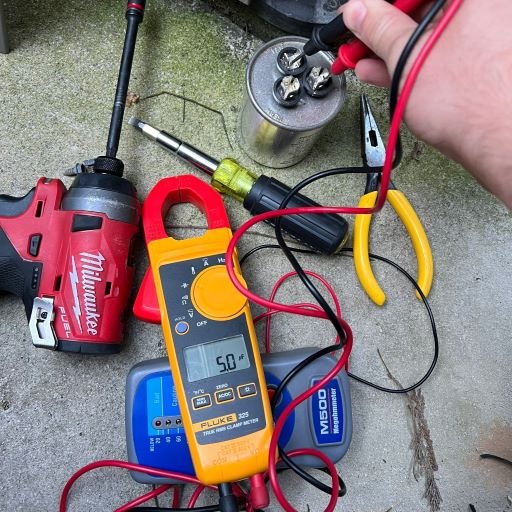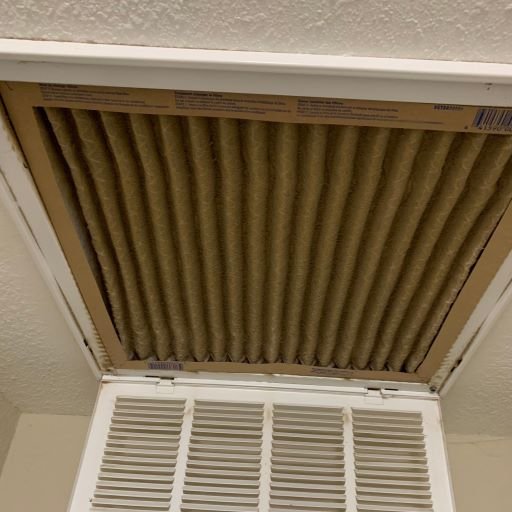General HVAC Troubleshooting
Introduction:
Welcome to the world of HVAC—where comfort meets necessity. A well-functioning heating, ventilation, and air conditioning (HVAC) system is more than a mere convenience; it's a critical component for maintaining a comfortable and healthy home environment. However, like any complex system, it's prone to its share of issues. Whether it's the peak of summer or the dead of winter, experiencing problems with your HVAC can be a major discomfort and, at times, a safety concern. This is where a solid grasp of general HVAC troubleshooting can be a lifesaver.
In this guide, we'll navigate the common problems and solutions in the realm of HVAC maintenance and repair. From dirty air filters that compromise air quality and system efficiency to more intricate issues within your air conditioner or central air conditioning system, understanding the basics of HVAC troubleshooting is essential. Our journey begins with a foundational understanding of your system and progresses through identifying common maladies, offering DIY fixes, and knowing when to call in the professionals.
Stay tuned as we embark on this informative journey, empowering you with the knowledge to tackle some of the most common HVAC issues head-on.
Understanding Your HVAC System:
A. Components of an HVAC System:
Before you can effectively troubleshoot any problems, it's crucial to understand the components that make up your AC system. At the heart of your home's comfort, the system typically includes an air conditioner or central air conditioning system designed to provide cool air during hot months, and a heater to ward off the cold. The system is not just about warming or cooling the air; it's about ensuring the indoor air quality is healthy and comfortable. Key components include the air filters, which trap dirt and debris to prevent them from entering your home, and the heat exchanger, which is essential for warming the air during colder times.
B. How HVAC Systems Work:
Understanding how these systems work is crucial for effective troubleshooting. Your AC system operates by passing air through several stages of conditioning—cooling or heating, filtering, and then circulating it throughout your home. In the summer, your air conditioning systems work tirelessly to absorb heat from the indoor air, expel it outside, and circulate the resultant cool air via a series of ducts. Conversely, in colder months, the system heats the air and distributes the warm air to maintain a warm and cozy environment. Central components like the evaporator coil and condenser coil play pivotal roles in the cooling process, while the blower fan ensures the conditioned air is effectively circulated.
In the next section, we'll delve into the common problems that might interrupt this smooth operation, from dirty air filters to a tripped circuit breaker, and provide you with practical tips for general HVAC troubleshooting. Stay tuned as we unravel the mysteries of your AC unit, ensuring you're equipped to handle the most common issues with confidence and savvy.
Common HVAC Problems and How to Identify Them:
HVAC systems are marvels of modern comfort, but they're not without their issues. Understanding the common problems that can plague these systems is the first step in effective troubleshooting. Here's a rundown of frequent troubles and how you might identify them:
A. Lack of Maintenance:
One of the most pervasive issues leading to a myriad of HVAC problems is the lack of regular maintenance. Just like any other major appliance in your home, your heating and air conditioning system needs regular check-ups to run efficiently. Neglect here can lead to reduced air flow, lower system efficiency, and in some cases, premature system failure. Signs that your system might be suffering from maintenance neglect include reduced heating or cooling efficiency, strange noises, or unexpected increases in energy bills.
B. Dirty Filters:
A very common and often overlooked problem is a dirty or clogged air filter. Air filters are your system's first line of defense against dust, pollen, and other airborne particles. When they become clogged, your system has to work harder to circulate air, leading to inefficiency and, eventually, system breakdowns. If you notice that your system is working harder than usual or if it's been a while since you last changed the filter, it's probably time for a new one.
C. Thermostat Issues:
Sometimes the problem isn't with the HVAC system itself but with the thermostat controlling it. A malfunctioning thermostat can lead to rooms that are too hot or too cold and can cause the system to turn on and off more frequently than necessary. Common signs of thermostat issues include the air conditioning system not turning on, or temperature inconsistencies throughout your home.
D. Strange Noises and Odors:
Your heating and air conditioning system should run relatively quietly and without emitting any strong odors. If you start hearing unusual noises like grinding, banging, or squealing, it could indicate a problem with a belt, motor, or other component. Similarly, unusual odors like a musty smell can suggest mold in your ducts, while a burning smell might indicate an electrical problem. These are signs that your system needs immediate attention.
In the next section, we'll dive into the DIY troubleshooting steps you can take before calling in the professionals. From ensuring your safety to simple fixes you can do on your own, we'll cover all you need to keep your HVAC system running smoothly. Stay tuned for practical advice on maintaining and troubleshooting your air conditioning system like a pro.
DIY Troubleshooting Steps:
When your HVAC system goes awry, there are a few things you can do before calling in the professionals. Here’s how you can safely attempt to troubleshoot and resolve minor issues:
A. Safety First:
Before you do anything, safety is paramount. Ensure your AC unit is completely turned off before you start tinkering with it. This means turning off the power at the breaker to avoid any electrical hazards. Also, make sure you're equipped with the right tools and protective gear if necessary.
B. Simple Fixes:
Reset Your System: Sometimes, all your system needs is a reset. Turn off the power, wait for a minute, and then turn it back on. This can often resolve minor glitches.
Clean Components: Dust off visible parts of your system, especially the vents and the area around your outdoor unit. Make sure there's no debris clogging the system.
Check for Obvious Issues: Ensure all vents are unblocked, check for any loose components, and ensure the thermostat is set correctly and working.
C. When to Call a Professional:
If you've tried the simple fixes and your system still isn't working, it's time to call a professional. Issues like refrigerant leaks, electrical problems, or deep mechanical faults are not for the average DIYer. Remember, attempting to fix these issues yourself can be dangerous and might void your warranty.
Preventative Maintenance Tips:
To avoid future troubles, here are some preventative maintenance tips to keep your AC system in top shape:
A. Regular Cleaning and Maintenance:
Regularly replacing air filters and scheduling annual maintenance checks with a professional can prevent the most common issues and extend the lifespan of your system.
B. Seasonal Preparation:
Before the onset of extreme weather, check your system. Ensure it's clean and functioning well before it needs to work the hardest during the peak of summer or winter.
C. Energy Efficiency Practices:
Use your system wisely to save on energy bills. This includes using programmable thermostats, sealing any leaks in your windows or doors, and ensuring your insulation is up to par.
Navigating HVAC Repairs and Professional Help:
When DIY fixes won’t cut it, knowing how to navigate repairs and professional help is crucial:
A. How to Choose a Reliable Technician:
Look for licensed, experienced professionals with good reviews. Ensure they offer clear, upfront pricing and a warranty for their work.
B. Understanding the Costs:
Know that the cost of repairs can vary widely based on the issue, your system's age, and even the time of year. Always get a few quotes before deciding on a service provider.
C. Building a Relationship with Your HVAC Contractor:
Having a go-to professional can make all the difference. They get to know your system and can provide personalized advice and timely service.
Conclusion:
Understanding the basics of general HVAC troubleshooting is crucial for any homeowner. By recognizing common issues, performing simple fixes, and knowing when to call the professionals, you can ensure your system runs efficiently year-round. Remember, regular maintenance is key to preventing most problems. Stay proactive, and your heating and air conditioning system will keep you comfortable for years to come.
FAQs for General HVAC Troubleshooting
1. Why is it important to regularly clean and maintain air ducts in my HVAC system?
Cleaning and maintaining air ducts are crucial for several reasons. First, clean ducts ensure that your air conditioning system efficiently blows air throughout your home, maintaining consistent temperature and air quality. Over time, dust and debris can accumulate in the ducts, obstructing airflow and forcing your system to work harder, which can lead to increased energy costs and reduced system lifespan. Furthermore, dirty air ducts can degrade indoor air quality, circulating pollutants, and allergens throughout your home. Regular cleaning helps remove these contaminants, ensuring the air you breathe is healthy and clean.
2. How does my air conditioner absorb heat from my home and what should I do if it's not working properly?
Air conditioners operate on a basic refrigeration principle: they absorb heat from the indoor air and release it outside, leaving your home cooler. This process involves the refrigerant, which absorbs and releases heat as it circulates between the indoor evaporator coil and the outdoor condenser coil. If your air conditioner is not absorbing heat effectively, it could be due to a variety of issues such as a dirty air filter, low refrigerant levels, or a malfunctioning compressor. If you notice your system isn't cooling as effectively as it should, first check and replace any dirty air filters. If the problem persists, it's time to contact a professional technician who can diagnose and fix issues related to the refrigerant or other complex components. Regular maintenance checks can also prevent many common issues, ensuring your air conditioner efficiently absorbs heat and keeps your home comfortable.



